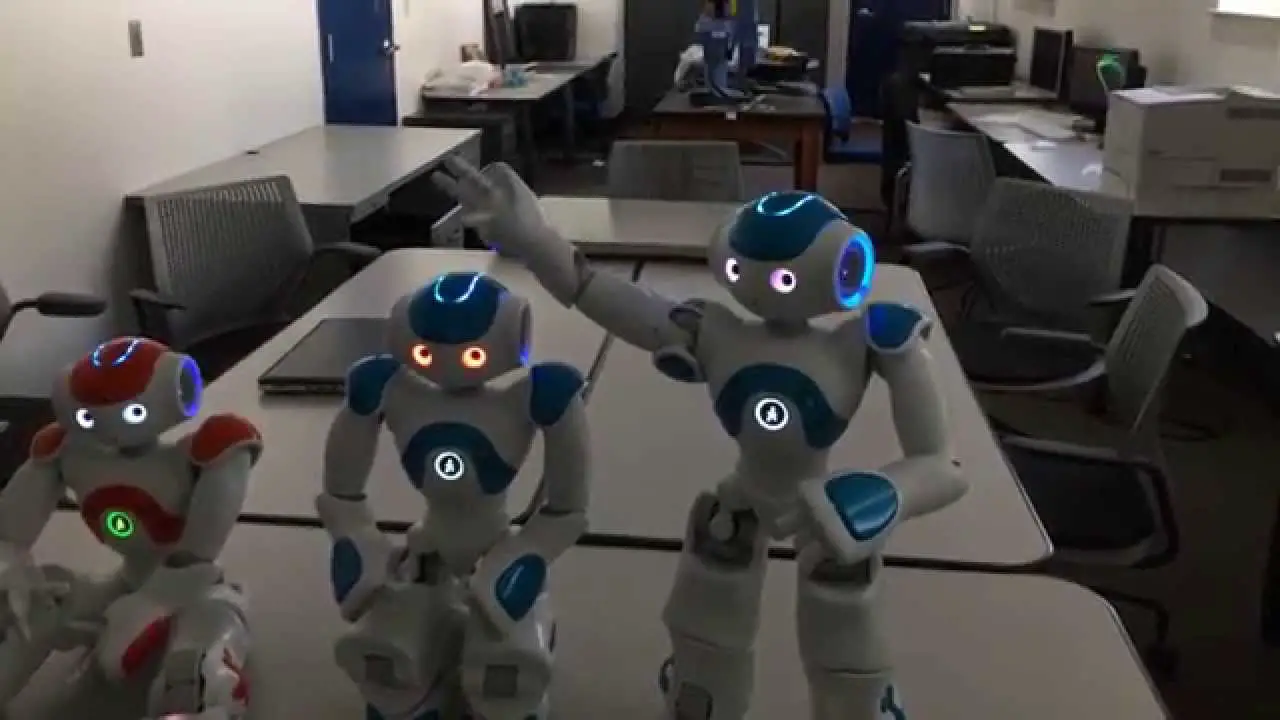News
A Robot Has Passed a Self-Awareness Test for the First Time

A robot at Ransselaer Polytechnic Institute in New York has solved the famous ‘King’s Wise Men’ puzzle, which is a classic logic and self-awareness test.
Here is how the puzzle goes:
A King invites the three wisest men in the country to participate in the contest for the position of the King’s advisor. He tells them that he will put either a white or a blue hat on their heads and informs them that at least one of these hats will be blue. There are no mirrors in the room and the wise men are not allowed to talk to each other, so they can’t see the color of their own hats but are able to see each other’s hats. The task is to work out the color of the hat they are wearing using the given information.
I don’t know if you managed to find the solution, but one of the three Nao robots that participated in the test certainly did. Of course, it was an adapted version of the puzzle, tailored to artificial intelligence and its limitations.
The robots were told that two of them had been given a “dumbing pill” that rendered them unable to speak (in fact, they simply had their volume switch turned off) while the third robot had been given a “placebo”. Then the tester asked them which pill they had received. As a result, only one of the robots was able to make a noise saying: “I don’t know,” since the other two were mute. Having heard its own voice, it figured out that it was the one that had received the placebo and put its hand up, saying: “Sorry, I know now. I was able to prove that I was not given a dumbing pill.”
You can watch this cute robot in the video below:
You may think that it’s not the hardest puzzle to solve, but, in reality, it’s extremely difficult for robots. Apart from listening and understanding (which many robots are able to do), they need to hear their own voice and distinguish it from others. Moreover, they need to work out the answer based on the fact of hearing their voice.
Self-aware robots may sound like a scary thing, but the researchers who conducted this test see the results in the positive light. Team leader Selmer Bringsjord said that the successful completion of similar tests will make robots adopt new abilities and become useful to humans.
At the same time, it should be noted that the test was rather limited, so the results only indicate that the robots were self-aware in a specific situation. Just like with the computer that passed the Turing test last year pretending to be a 13-year-old boy, the results are not conclusive but are quite promising for the development of smarter robots.
In any case, artificial intelligence at this stage is very far away from being truly self-conscious and human-like. The reason is that robots just can’t handle the volume of information that the human brain can process. But who knows where the future advancements in technology and robotics could lead us…
Typos, corrections and/or news tips? Email us at Contact@TheMindUnleashed.com
